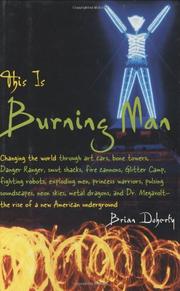Burning Man Attorney Threatens Bureau of Indian Affairs Over Traffic Stops
The feds insist it's just a coincidence that an opioid task force targeted the one road to Burning Man as the event ramped up.
In the week or so leading up the official beginning of the annual Burning Man festival, which is in full swing as of yesterday, agents of the Bureau of Indian Affairs (BIA) started a program of enhanced traffic law enforcement in the name of the U.S. Department of the Interior's opioid reduction task force. More specifically, they started vigorously stopping cars in Nixon, Nevada, a town that nearly all of Burning Man's attendees pass through on the 447. That state road is the only paved and drivable route from Reno to the Black Rock playa where the event is held.

A Reno Gazette-Journal report quotes BIA spokeswoman Nedra Darling insisting these efforts had nothing to do with Burning Man. They are, she claims, just one more in a continual series of efforts that in previous iterations "seized $4.79 million in drugs from tribal reservations in Arizona in May and more than $2.5 million in drugs from tribal reservations in New Mexico in April." They just happened to coincide with the event's launch, she says.
The paper further reported that these efforts are aggravating the folks who run Burning Man, a fully permitted event that takes place on federal land:
The Burning Man organization has written a letter to top federal officials threatening a federal lawsuit in the wake of continuing traffic stops slowing vehicles headed to the 80,000-person event….The organization called for an immediate stop to the "improper and apparently unconstitutional behavior" and also demanded that all involved federal agencies preserve all records related to the traffic stops in a letter obtained by the Reno Gazette Journal.
"Many of the (traffic stop) tactics are attempts to intimidate and harass travelers who are doing nothing more than passing through the Reservation on a state-maintained highway. This is unacceptable and this behavior should not be tolerated by agency leaders nor the public," said Adam Belsky, special counsel to the Burning Man organization in the Wednesday letter.
The letter is addressed to Mr. Darryl LaCounte, acting director of the U.S. Bureau of Indian Affairs, and other top BIA officials in Washington, D.C….
"It appears that the BIA agents are unconstitutionally targeting attendees of the Burning Man event in violation of their First Amendment rights of free expression and of freedom to assemble," Belsky wrote.
So far, federal authorities will not comment on how many arrests have resulted from the stop, or what percentage of drug dog alerts led cops to contraband, or what percentage of that contraband consists of opioids. "The Pyramid Lake Police Department said that it will not release the records of how many citations, arrests and seizures the tribal and federal officers have made until 30 days after the operation concludes," the Gazette-Journal says.
The Pyramid Lake Tribal Council is cooperating with the BIA on the stops, stating they are in the service of helping "to carry out President Trump's directive to stop the opioid crisis."
In their official public statement on the law enforcement efforts—distinct from the threatening letter obtained by the Gazette-Journal—Burning Man organizers stress the damage that such pointless delays in movement could have on health and safety, on traffic congestion, on the economic benefit the event brings to the local tribes, and on safe operation of the event itself as vendors' and workers' arrivals are delayed.
They also list some of the reasons given to drivers for the stops: "driving over the posted speed limit, not stopping at the line at a stop sign, crossing the centerline or a tire touching the centerline, partially obscured license plates, not using turn signals, dim and non-functioning lights." Many of those stopped have insisted they were breaking no traffic laws. Burning Man is encouraging everyone stopped to fill out a report for them on their experiences.
Some personal stories and grousing about the traffic stops can be read here and here, although the idea that insanely vigorous enforcement of traffic laws turned into full-on roadblocks is exaggerated. The Gazette-Journal has also printed some personal tales of the stops.
Most of the reports I'm now seeing online indicate that the enhanced traffic stops are in abeyance now as the event is officially in motion. Nonetheless, everyone should of course obey all traffic laws and all other laws at all times always.
A few years back, as I reported, Bureau of Land Management forces were running drug dogs on mail sent to the event. Surprise, surprise: Their canine accusations of drug law violations were consistently wrong.
Burning Man has evolved over the years from near-anarchy to near–police state. I wrote the first narrative history of the event, This is Burning Man back in 2004, with a 10th anniversary edition available as an e-book with a new afterword.


Show Comments (41)